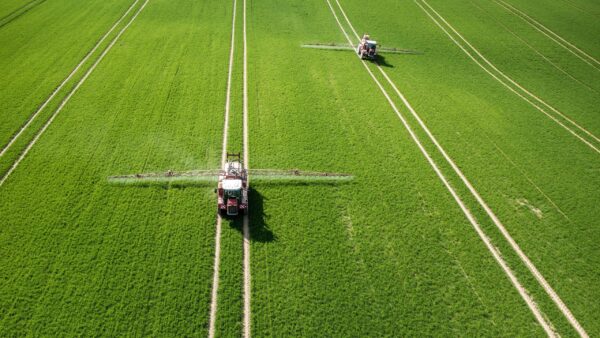The American Seed Trade Association’s outgoing chair talks about challenges and successes during the organization’s most challenging time in recent memory.
Wayne Gale has been listening to his favourite audiobook — Never Split the Difference by Chris Voss — because he wants to brush up on his skills in the negotiation department.
“I wish I’d found it 10 years ago, it’s the best book on negotiation,” says Gale, who wraps up his time as American Seed Trade Association (ASTA) chair in June. In the book, the author — a former FBI hostage negotiator — outlines the different ways to use human psychology in order to do better deals that in end help you get what you really want.
“Let’s say you offer to sell something for $10, and your customer only wants to pay $7. Naturally they’ll offer you $5 so you eventually end up accepting the $7. Sure, you’ll still make a profit, but maybe if you had better negotiating skills, you could have negotiated a better deal. Meeting in the middle usually isn’t good for business,” says Gale, owner of vegetable and flower seed company Stokes Seeds based in Ontario, Canada.
Despite not seeing himself as the world’s best negotiator, Gale helped the ASTA board persevere through what could be viewed as the most challenging time in the organization’s history. In March, Gale found himself having to lead a board of directors that could no longer meet in the flesh.
“Almost half my term as chair got derailed by the pandemic. Even before the pandemic I thought it crucial to make sure the meetings were as time efficient as possible and that there was a real focus on governance of the association. I think I did that well, which was especially challenging in the virtual space. It was difficult to do in the world of COVID,” he says.
Gale soon found himself chairing ASTA’s first virtual executive session held via web conference.
“It’s always difficult to get people to step up and speak with that sort of technology. It’s different trying to run a meeting over the internet where you need input from everyone. COVID has changed the rules of the game.”
In the beginning, he was up against several barriers put in place by the world of virtual meetings.
“The first was learning how to chair an organization in a virtual environment and making sure all members are getting the information they need without the typical in-person annual meetings. At all levels — staff, board and executive — the communications must continue, and everyone needs to be heard,” he says.
Ensuring everyone has a voice in the virtual space can be easier said than done, he notes.
“If you’re not conscious of it, the phone and computer tend to result in a one-way discussion, whereas with an in-person meeting there are more voices and visual cues that people use which prompt them to speak up. It’s not as dynamic and the flow isn’t as free over a platform like Zoom.”
Still, he successfully saw the board through a difficult number of months and will stay on as past chair for another three years. Prior to serving as chair he spent a year as second chair followed by a year as first chair.
“It’s a six-year commitment, really. I think I accomplished what I set out to which was to bring ASTA closer to the Canadian Seed Trade Association (CSTA).”
He helped do that by encouraging the CSTA to adopt the Better Seed, Better Life promotional program originally started by ASTA.
“There has been good cross pollination in terms of ideas with me serving as that conduit between the two boards.”
Of course, with success comes challenges, and Gale sees some coming in the future. With Canada embarking on an effort to merge five of its seed associations to create one single National Seed Organization (NSO), he says there will be hard work ahead to ensure the relationship between ASTA and the Canadian seed industry stays focused.
[tweetshare tweet=”It’s not as dynamic and the flow isn’t as free over a platform like Zoom.” username=”germinationmag”]
“The relationship will be more difficult because the two organizations will be so different in terms of priorities and membership. With the proposed Canadian NSO, there is a limited number of board positions representing such a huge membership. ASTA has always had a direct link at the board level to CSTA, and I don’t expect to see that with the existing board structure of the proposed NSO just by its very nature, at least not at first.”
Perhaps the key, he says, will be good negotiation between the two sides in figuring out how best to continue helping one another.
“The biggest challenge for ASTA right now is working with a membership affected economically by the imbalances COVID has introduced. Pigs are being slaughtered rather than being sold. Different produce industries are going through difficulties with foreign worker programs. Field crop producers went through a hard, wet year in 2019. There are issues at the seed trade level to help members navigate,” he adds.
“All that affects us and our members since we’re the ones feeding the animals or producing the produce using foreign worker programs. At the end of the day, it’s each organization’s task to make sure their respective governments hear what’s happening on the ground and what the barriers to success are in maintaining food security.”













